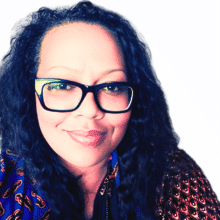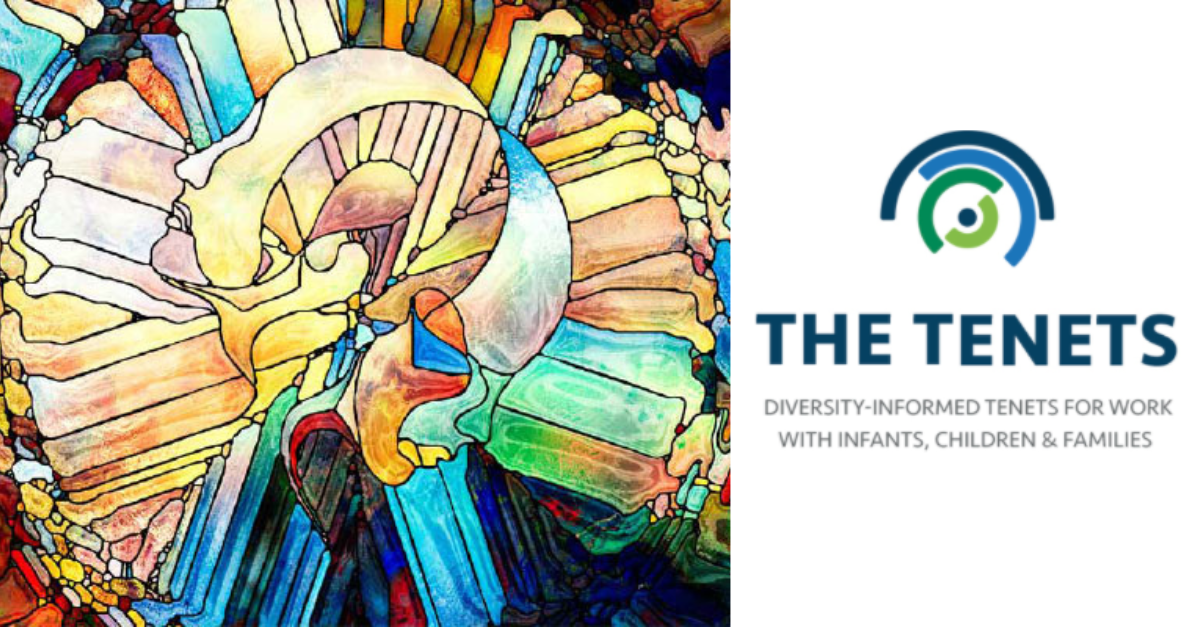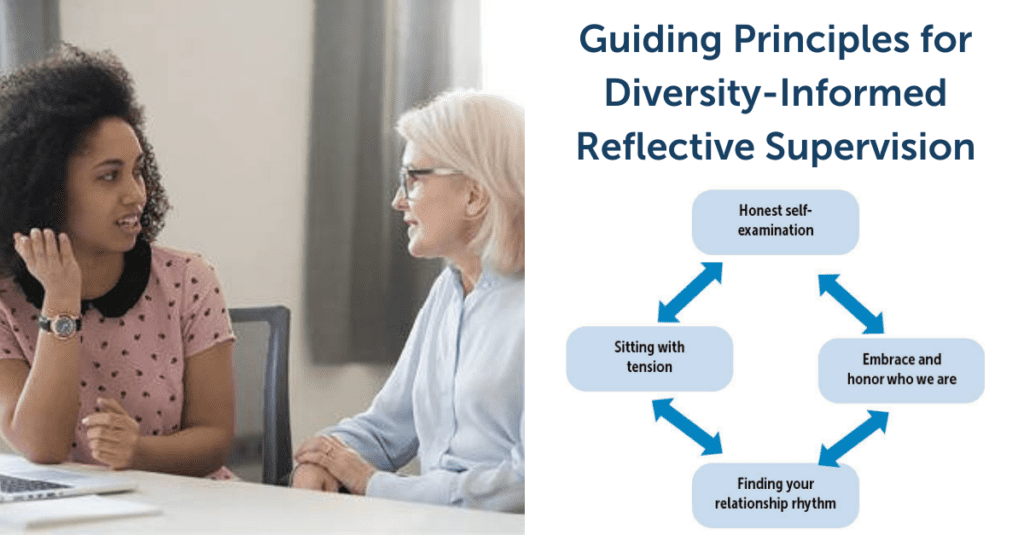It Shouldn’t Take a Major Incident to Make DEI Training Part of ECE Professional Development

What the Mission means to LisaWith ZERO TO THREE I want to help teachers understand and meet the needs of their students by prioritizing a sense of commu…
Creating an inclusive environment is attainable if leadership will take action.
I’ve experienced racism throughout my career in early childhood development, from my first job as a teacher’s assistant. Later, as a Preschool Program Director, the board actually said to me, “We chose you because we feel like you’ll be able to relate to white people and Black people because you know how to act.”
Though it was an immense hit to my self-esteem, I stayed at that job for seven years, because it was a choice between my morals and my livelihood. I was able to excel in spite of their racist tendencies, bringing DEI training (called mindfulness education at the time) that basically helped them understand to be nice to people regardless of their race.
Racist comments persist in early childhood settings throughout the country. In a more recent example, Carl Gillette, an African American Knoxville-based preschool teacher, resigned after a trainee informed him that he “doesn’t like Blacks.” When he took the incident to his superiors, they responded with “Everyone had their own opinion.” So, he resigned.
Since then, the preschool has taken steps toward Diversity, Equity, and Inclusion (DEI) training to ensure a safer school environment, but it shouldn’t take an incident like this to ensure early childhood staff are properly trained from the start. Leaders who are waiting for an incident to change their staff culture aren’t being proactive, and aren’t concerned with the actual well-being of each of their team members.
Instead, they need to start today.

Psychological safety at work is a need and a right.
DEI training should really be called DEIAB: Diversity, Equity, Inclusion, Accessibility, and Belonging. These are all traits that employees deserve to have in a healthy workplace, but also that babies and toddlers deserve to be around in their formative years and beyond. Belonging is one of the first three foundational levels in Maslow’s Hierarchy of Needs for a reason — we all need true psychological safety.
Black and marginalized employees working with children need to not feel questioned for everything they do. They need to be able to channel all of their energy into the children in their care, without that extra layer of stress.
I know, because I’ve been there.
Black and marginalized employees working with children need to not feel questioned for everything they do. They need to be able to channel all of their energy into the children in their care, without that extra layer of stress.

Reconsider policies that stereotype.
If you or your staff have team members that don’t speak English, they might tell you that they are often targeted and pressured to suspend using their native, first, heritage, or home language at work. In my role as a preschool director, I had an English-speaking teacher request to add a policy in the teacher’s handbook that stated only English could be spoken on-site, to eliminate conversations her colleagues were having in Spanish. I asked her why, and the teacher said she was afraid others were talking about her. I replied, “But isn’t it true that we all talk about one another? That’s what the staff lounge is for — you guys talk about me — it’s a safe haven. Everybody talks about everybody.” Assimilation is requiring people to speak a dominant culture language.
This example shows that oftentimes, racist remarks stem from fear, leading to mistreatment of others. Let’s have these incredibly tough conversations outside the context of a reaction to a major incident, when everyone can talk, think, and learn effectively (in any language they want to). Let’s respond with love and grace and listen to one another.
Determine where your staff is now, and where they need to be.
Your staff isn’t simply racist or not. There is an Antiracist Multicultural Continuum, recommended by the Northwest Regional Education Service District, that will help you assess your team’s current status, and where they need to be.
Teams without DEI training often start at the first stage, and progress through time and with increased awareness, multiple steps forward, sometimes achieving the final step:
- Conformity: Team members and leaders intentionally or unintentionally exclude historically underserved and marginalized groups, avoid open discussion about race and oppression, and might even enforce attitudes of white supremacy. They opt for colorblindness as the norm.
- Symbolic: These organizations view themselves as committed to inclusion, recruit people of color actively, but fail to publicly express their views, and often have high employee turnover as staff of color experience racist incidents. Their words and actions are incongruent.
- Affirming: Leaders encourage team members to explore and challenge the impact of racism, sponsor DEI training, and include socially oppressed voices at all levels of decision-making. However, they might remain unable, unwilling, or unskilled in making substantial changes in actuality.
- Antiracist: This staff actively uses process against racism, creating conditions to disrupt systemic inequity, and provides and leads antiracism training. They also act as allies to communities battling oppression and foster a tangible antiracist environment felt by all.
Integrative Awareness: Team members and leaders sponsor programs educating community members while experiencing equity as the expected community norm. They promote an environment where everyone can positively identify with their own racial groups while also acknowledging and sharing other aspects of their identity as well.
You can also use the equity lens resource to ask the tough questions with your team. Once you’ve identified where your team is, you can set goals together. Leaders can, and should, establish an open-door policy to discuss difficult topics, creating an open dialogue.
These proactive steps not only prevent a major incident but encourage your team to be an example for the next generation of young children who are watching and learning.
Lisa M. Wilson is the Director of Equity and Outreach at Zero to Three. She is an adjunct faculty member of the Early Childhood Education Department at Pacific Oaks University, and is currently completing her dissertation for a Doctor of Education (EdD) in Curriculum and Instruction. Lisa has worked in the field of early childhood education for over 20 years, is a previous chair and co-chair of the Child Care & Early Education Task Force, a member of Community Voices, and is Co-Founder of C.A.R.E.
